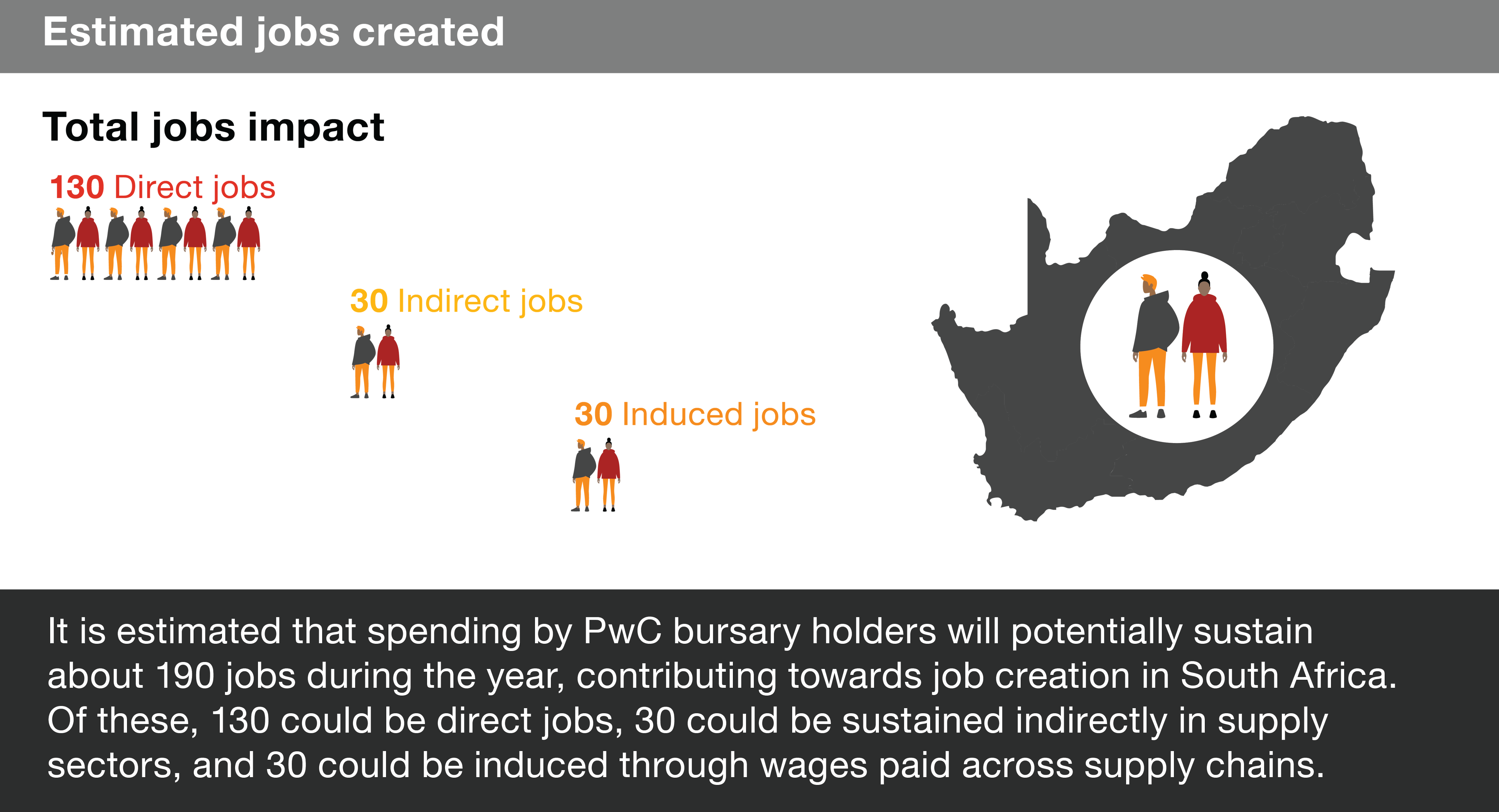Big businesses must prioritise building trust and reinventing their business models to thrive in South Africa's future economy
In its latest annual report, PwC SA measures the tangible socio-economic impact it has made in the country while building trust in society and solving together.
The recent Medium-Term Budget Policy Statement (MTBPS) noted that the outlook for corporate profitability has improved on the back of easing supply-side constraints (i.e. energy and logistics), improved business sentiment, and reduced inflation and interest rates. Alongside this, the statement noted that expectations for corporate tax collections in the current fiscal year were revised upwards.
For the business fraternity, navigating global megatrends—which comprise climate change, technological disruption, a fracturing world, demographic shifts and social instability—has placed pressure on its ability to stay profitable and contribute more to the economy. We are increasingly seeing the important role that big business is playing in building our economies and societies, and at PwC, we have prioritised making a meaningful social and economic impact in the last financial year.
We have focused our network growth priorities in four key areas: trust in what matters, business model reinvention, artificial intelligence (AI), data and technology, and sustainability.
“This approach is helping us to position our firm for the ever-changing business landscape and remain resilient so that we can best serve our clients and stakeholders needs.”
“These trends are reshaping South Africa’s landscape, highlighting the need for businesses to take stock of the core components they need to prioritise to remain relevant and thrive.”
How PwC measured its tangible socio-economic impact in 2024
Each year, big businesses face myriad pressures, with the stakes often higher than the previous year. Big businesses are expected to attract and keep top talent, while operating sustainably and making a positive impact on society. However, aside from information provided by revenue and profit data, it is not always clear as to how these efforts and achievements can be monitored, measured and communicated.
This year, PwC South Africa embarked on an insightful exercise to quantify our societal impact in order to ensure we are driving meaningful and positive change. Within the last year (July 2023 – June 2024), we estimate that our firm’s daily operations sustained about 19,700 jobs—5,100 of which were direct PwC employees. The other 14,600 jobs were sustained through the expenditure of salaries by PwC staff.
The estimated economic impact this had on low-, middle- and high-income households amounted to approximately R8.8bn worth of income, while total government tax revenue benefitted from an estimated R2.6 bn in contributions generated from direct and indirect taxes tied to PwC’s operational spending in South Africa.
The results of this economic impact assessment (EIA) show PwC’s contribution to the South African economy through our operational expenditure, which positively impacted the country’s economic growth and employment levels, helped reduce poverty and income inequality, and contributed to increased levels of public services and infrastructure funding.
“These estimates spotlight the significant role that PwC is playing in shaping South Africa’s economic environment. It also highlights the interconnectedness between our operations and the country‘s economic metrics, which directly speaks to the pivotal role that big business plays in driving sustainable development and economic growth.”
“Through our economic impact assessment, PwC can measure the part it’s playing in addressing critical social issues, which include poverty alleviation and job creation. We believe that these efforts are key to building trust in society and solving important problems.”
Each year, we take in a new cohort of bursary holders into our chartered accountant (CA) training programme. As part of our EIA, we assessed the extent to which our bursary holders would benefit in the coming year (one of the metrics used to determine our impact). During the year, they will spend their salaries on various goods and services, contributing to the South African economy, while simultaneously contributing to government tax revenue. The multiplier effect of this is reflected in the graph below.


As global megatrends reshape the business landscape, 45% of CEOs have recognised the need to reinvent their business models to remain competitive and sustainable over the next decade. In the past year, this is something we undertook in an effort to ensure we can remain relevant and competitive and help our clients to evolve their business models and thrive.
By leveraging AI, data analytics and emerging technologies, we are enabled to help our clients uncover new revenue streams and optimise their operations, just as we are doing with ours. Looking ahead, we plan to also keep our focus on sustainability and building trust in what matters, which will continue to help us drive meaningful change and ensure a better future for us all.
Explore the full report here
Africa Annual Review 2024
Contact us

Verena Koobair
Head of Communications and Societal Purpose Firm Pillar Lead, PwC South Africa
Tel: +27 (0) 11 797 4873





















